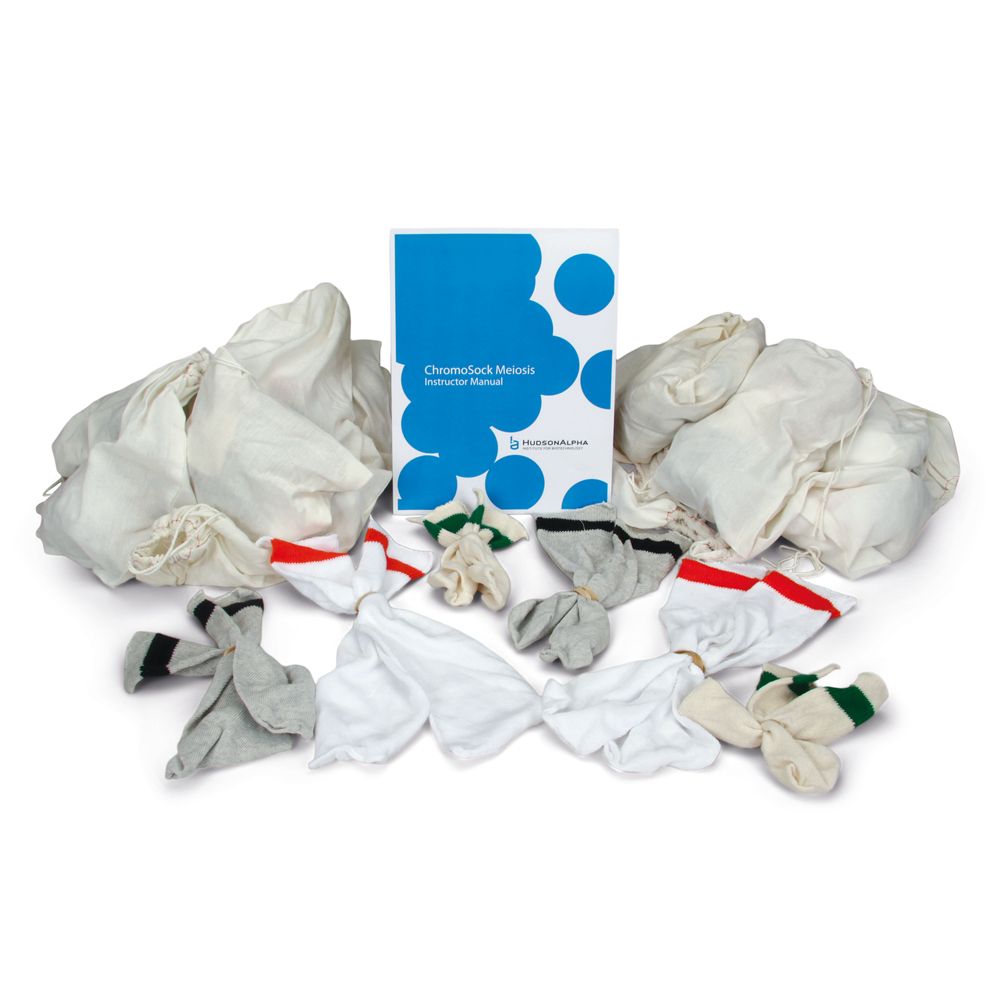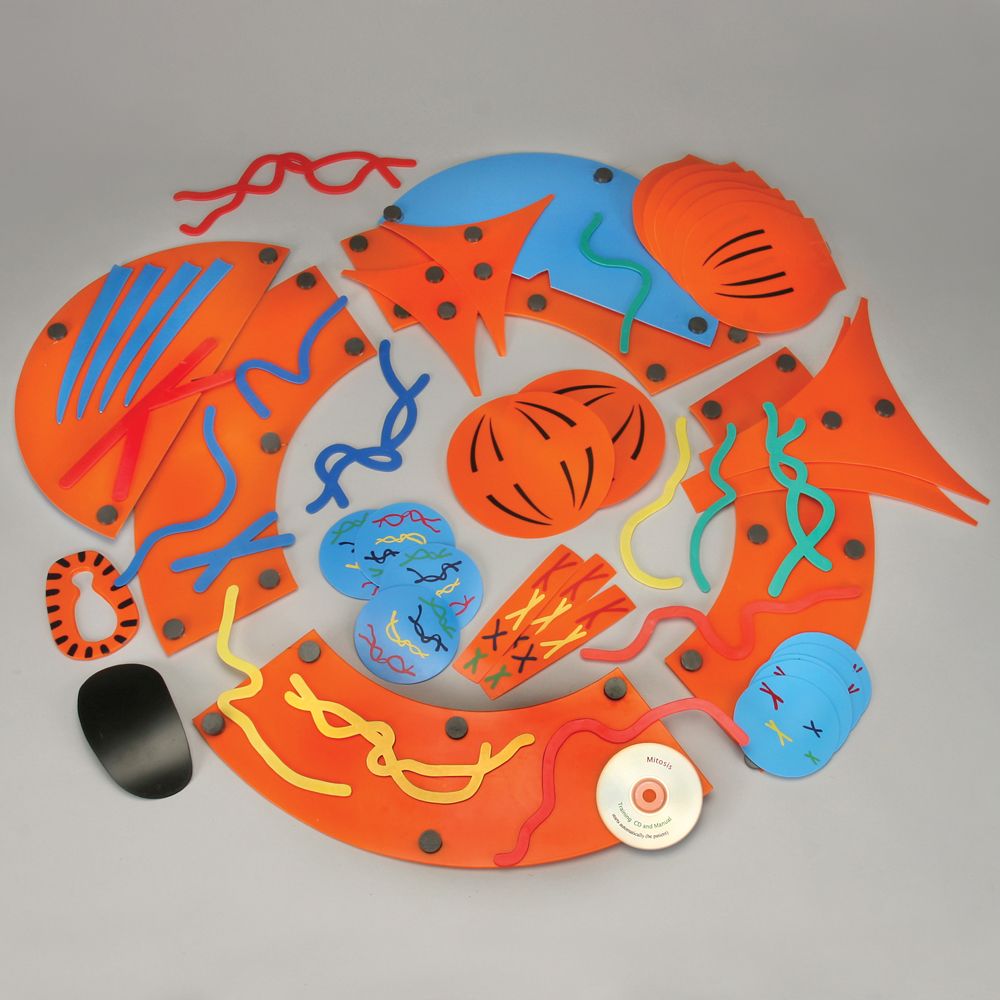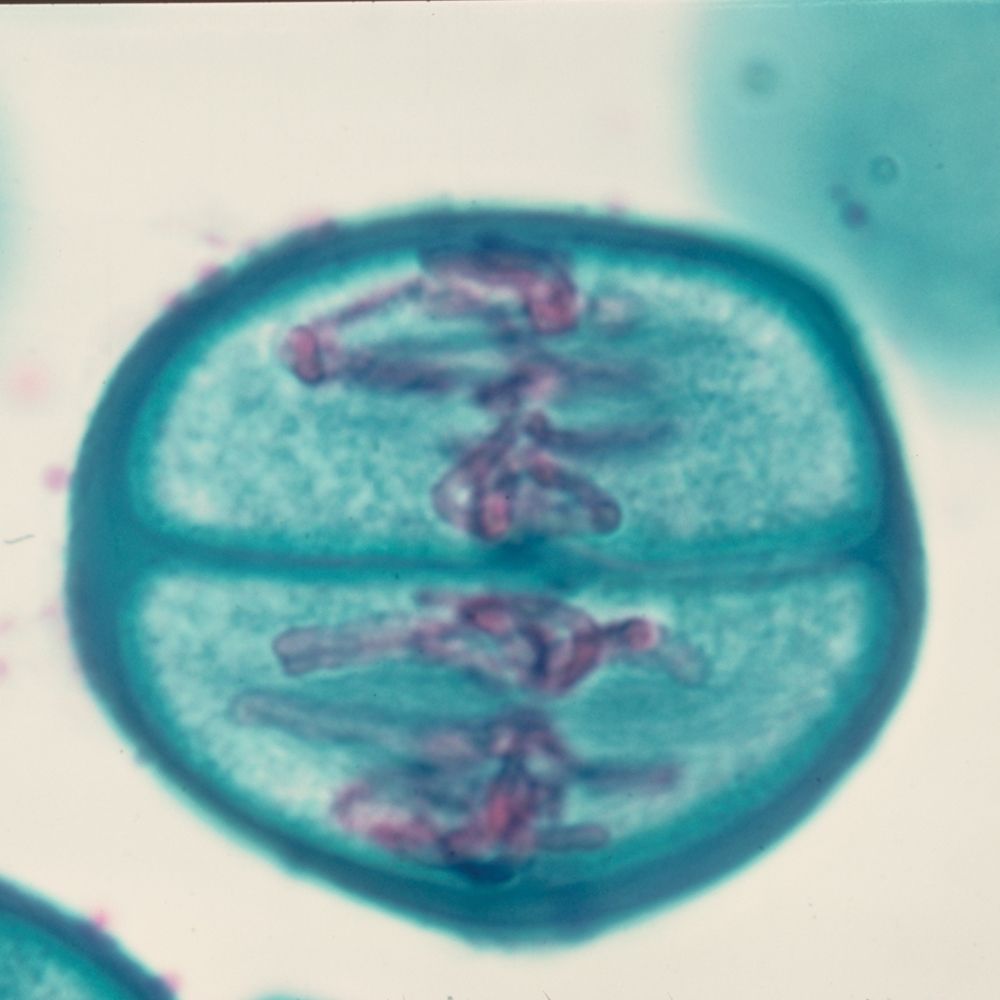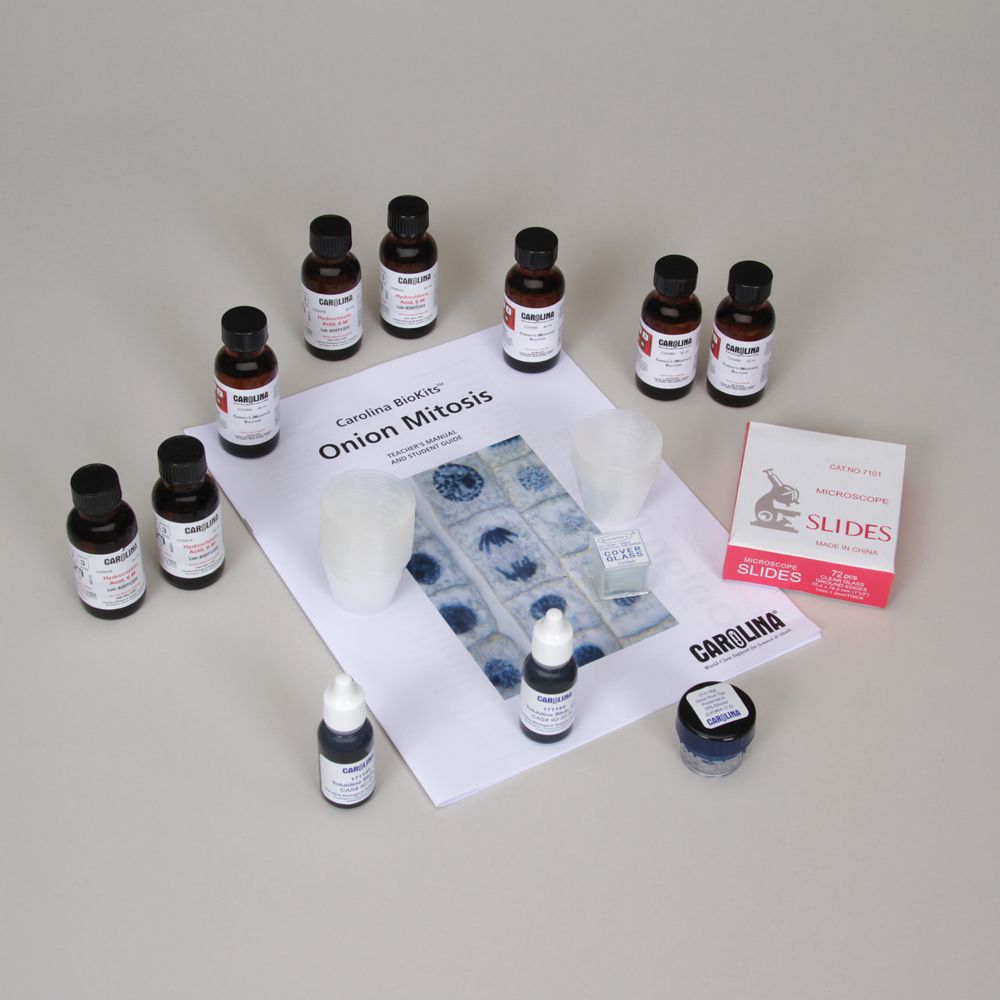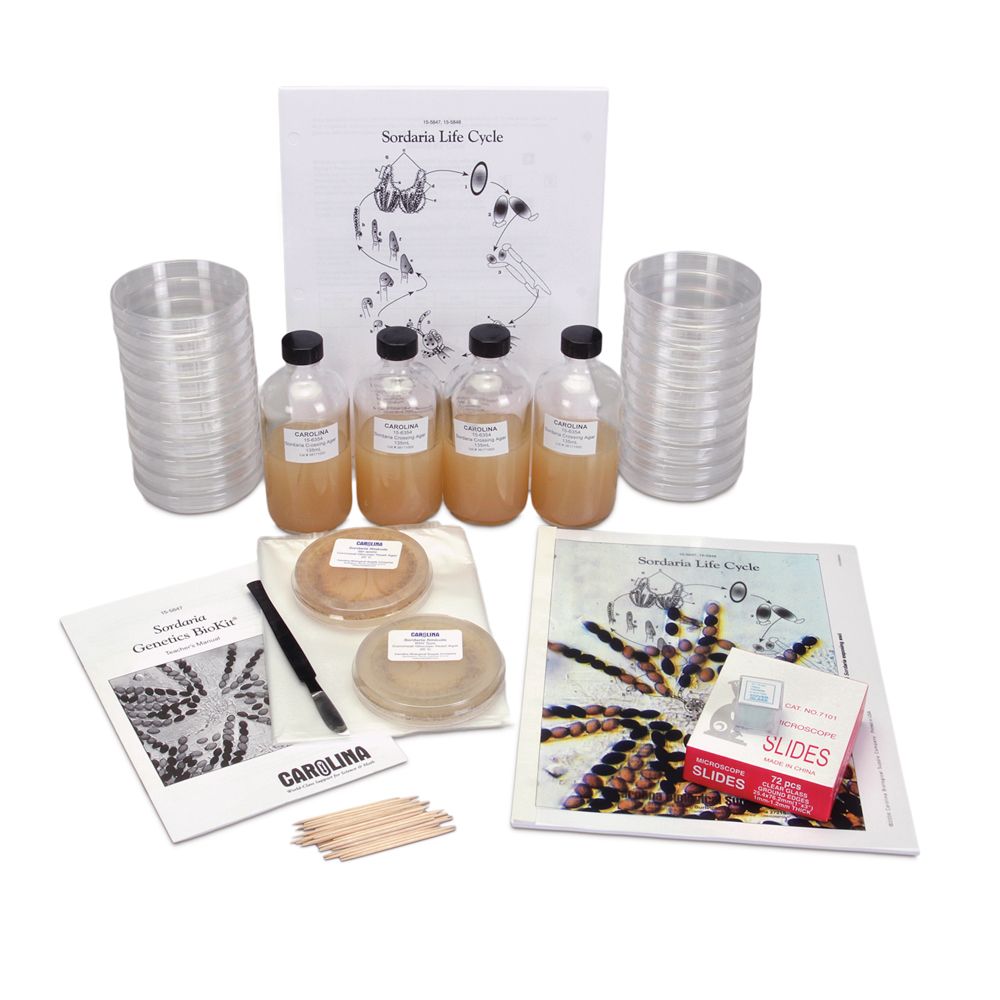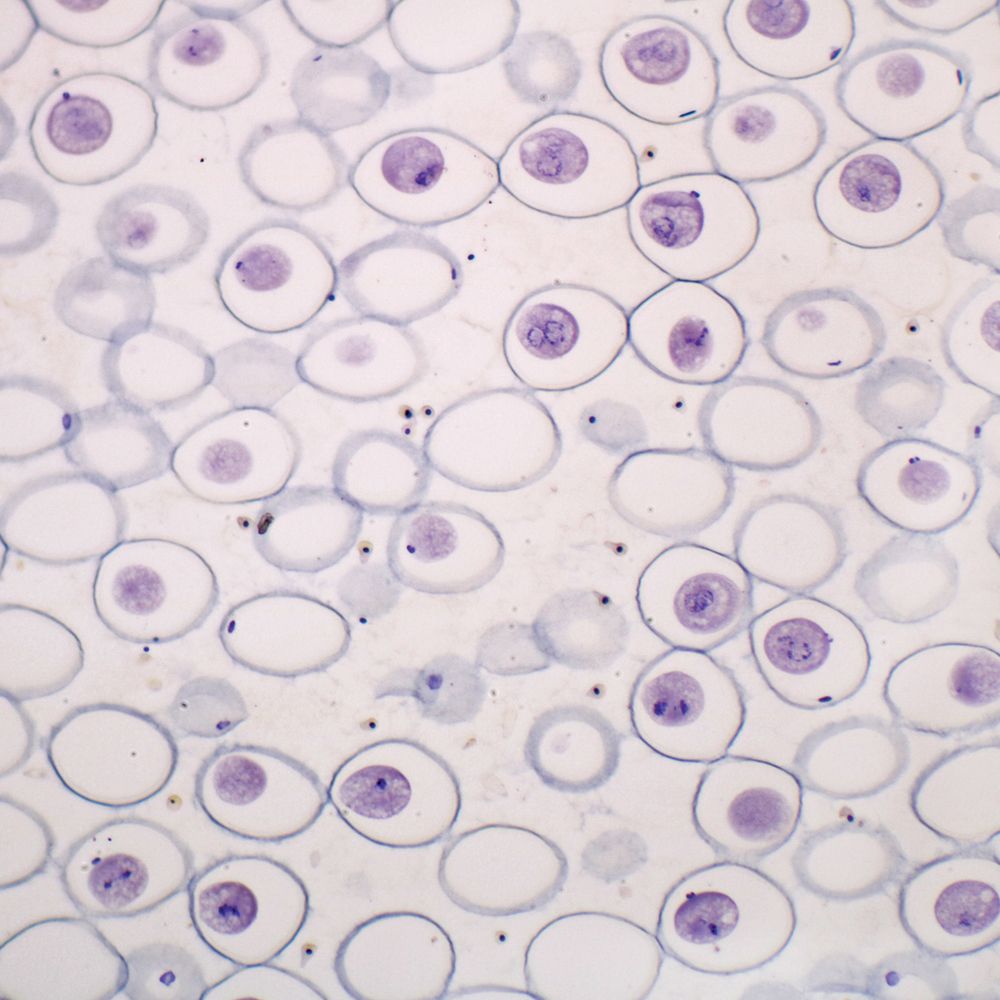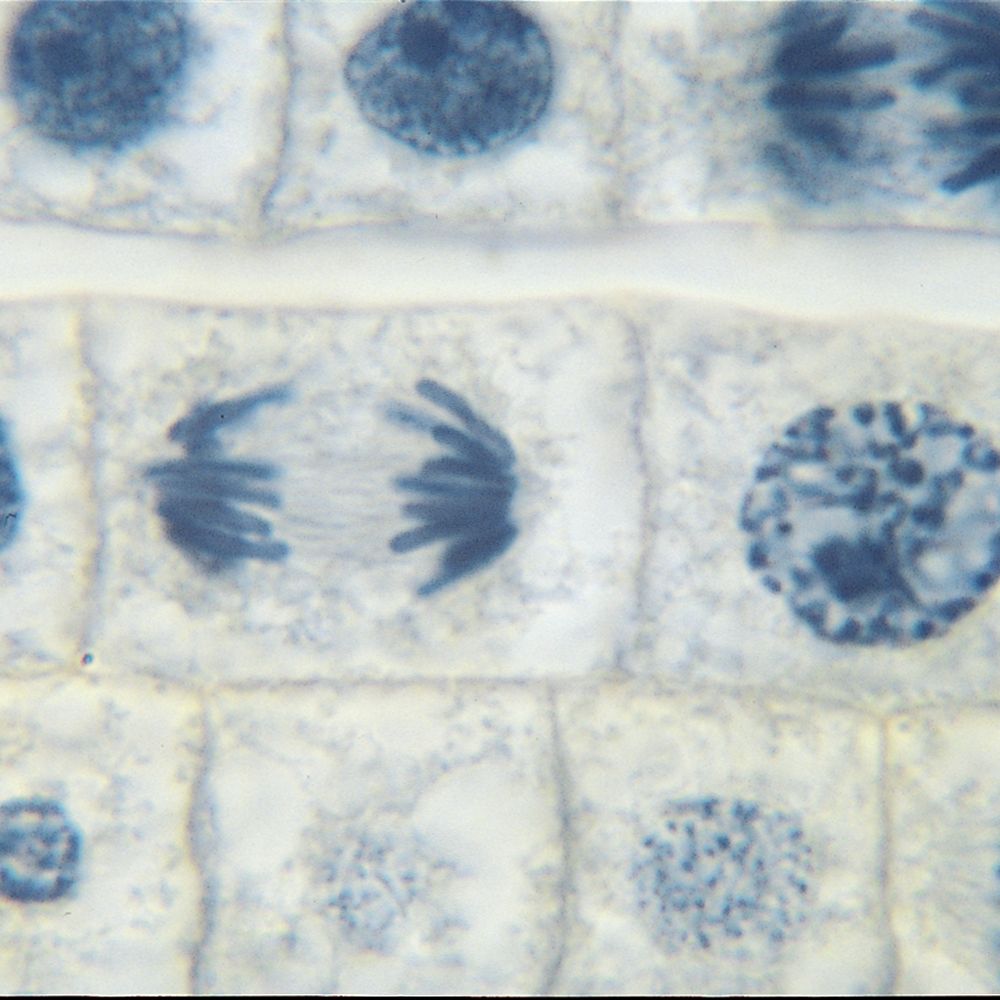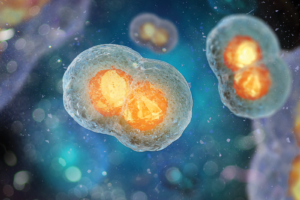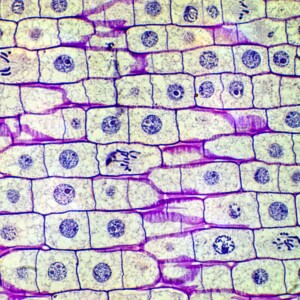The processes of mitosis and meiosis are fundamental topics in biology. During these lessons, students learn how cells divide and pass along genetic information to new daughter cells. This knowledge is important as students advance their learning in genetics, inheritance, and diversity. However, the concepts can be difficult for students to understand because they aren’t commonly viewed processes.
This guide provides an easy way to explore hands-on labs, manipulatives, and free resources that teach these essential processes.
The major areas covered include:
– Mitosis and Meiosis Simulations
– Observing Mitosis and Meiosis
Mitosis and Meiosis Simulations
Modeling is a principal way students learn the processes of mitosis and meiosis. Carolina offers several options–from using pop beads to ChromoSocks®. Explore the options below!
Modeling Mitosis and Meiosis Kit #171000
Beginning
Easy to Perform Requires little to no prior knowledge
Bring mitosis, chromosome replication, meiosis, and genetic inheritance to life with chromosomal modeling. Kit includes model set(s) (2 pairs of model autosomes, 1 pair of model Y chromosomes, 2 pairs of model X chromosomes, 4 chromosome fragments to model crossing over events, and 3 shapes of varying colors to simulate alleles) and teacher’s manual.
Chromosome Simulation Kit #171100
Beginning
Easy to Perform Requires little to no prior knowledge
Starting with the phenomenon of planarians multiplying by both asexual and sexual reproduction, students make sense of the differences between mitosis and meiosis. In Part 1, chromosome models are used to answer the driving question, “What happens to chromosomes when a cell divides to make a copy of itself?” Chromosome models are developed and evaluated again in Part 2 to answer the meiosis driving question, “How is the chromosome number reduced in sperm and egg cells so when they combine their chromosomes, the new organism has the correct number?”
ChromoSock® Meiosis Classroom Kit #214810
Beginning
Easy to Perform Requires little to no prior knowledge
Ever wish learning meiosis was as easy as folding socks? The ChromoSock® is a specialty sock, made in the US, that comes in different sizes, lengths, and colors to help demonstrate the differences between chromosomes and the genetic information they carry.
Mitosis Manipulatives Kit #211118
Beginning
Easy to Perform Requires little to no prior knowledge
Covers all stages of the cell cycle with easy-to-manipulate parts that represent chromosomes, asters, centrioles, and many other cell parts.
Meiosis Manipulatives Kit #211163
Intermediate
Easy to Perform Requires some background knowledge
Explore meiosis with your students using visual and tactile models. Make this abstract concept simpler by showing the exchange of alleles during cross-over with large, easy-to-read chromosome manipulatives.
Observing Mitosis and Meiosis
Students can also directly observe the different phases of mitosis and meiosis. We offer hands-on kits and microscope slide sets that are convenient and easy-to-use in your lab.
Mitosis and Meiosis Microscope Slide Set #308826
Beginning
Easy to Perform Requires little to no prior knowledge
Thirteen microscope slides selected to guide students through the events of cell division. Mitosis is demonstrated in onion root tip and fish blastodisc. Meiosis is demonstrated in lily anther and ovulary.
Carolina BioKits®: Onion Mitosis #171130
Intermediate
Easy to Perform Requires some background knowledge
Squash Method. Prepare your own slides to observe the different phases of mitosis. This is an updated kit from our popular BioKit® series, designed for a class of 30. The Onion Mitosis BioKit® includes everything that you need to prepare onion root tips slides. Students stain the root tips, prepare squashes, and observe mitotic phases.
Mitosis and Meiosis Kit #746450
Intermediate
Easy to Perform Requires some background knowledge
Using prepared slides and electronic images of whitefish and onion cells, students learn about the 4 stages of mitosis in Lab Activities A and B. Activity C requires the use of item #171100 Carolina BioKits®: Chromosome Simulation Kit, which is not included. A Sordaria Demonstration Cross Plate (item #155846) for demonstrating crossing over during meiosis is provided for Lab Activity D.
Sordaria Genetics #155847
Intermediate
Easy to Perform Requires some background knowledge
Students cross the wild-type Sordaria strain with the mutant tan strain. Hybrid asci are produced containing 4 dark- and 4 light-colored ascospores. Students then use tetrad analysis to calculate the gene-to-centromere distance in map units for the mutant tan gene.
Other Mitosis and Meiosis Products
We also have individual lab kits that integrate mitosis and meiosis simulations and observations; individual microscope slides; models; posters; and more for your classroom. Check out the options below.
Additional Mitosis and Meiosis Support
We have free resources to help you teach this concept, including:
- Free Activities
- Helpful Buying Guides
Free Cell Structure and Function Resources
Use these free resources to supplement your instruction about mitosis and meiosis.
Download Handouts:
- Learn more about the phases of the cell cycle.
- Identify and label pictures of plant cells at varying phases of the cell cycle with this worksheet.
Buying Guides
Choosing the appropriate equipment for your labs can be a challenging task. Our buying guides are designed to make your decisions easy. Review Carolina recommended microscopes or this handy guide.
For More Guidance
These are our top picks. If you don’t see what you’re looking for, we’ll be happy to help you find the right activities and kits to simplify your planning and implementation. If you have questions, please contact us at product@carolina.com.
About The Author
Carolina Staff
Carolina is teamed with teachers and continually provides valuable resources–articles, activities, and how-to videos–to help teachers in their classroom.




